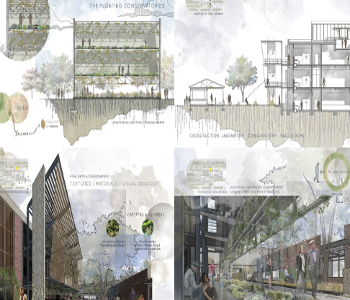Latest News Archive
Please select Category, Year, and then Month to display items
12 January 2024
|
Story Nonsindiswe Qwabe
|
Photo Sonia Small
 Since joining the UFS in 2008, Dr Grey Magaiza has worked extensively on approaches that can foster the socio-economic transformation of societies.
Since joining the UFS in 2008, Dr Grey Magaiza has worked extensively on approaches that can foster the socio-economic transformation of societies.
“The future should be one where communities can decide on their development agenda and futures. That’s the most important for me.” Dr Grey Magaiza, Deputy Director of the Centre for Gender and Africa Studies (CGAS) and Head of the Community Development programme on the Qwaqwa Campus, is passionate about capacitating communities to be agents of change and advancement. His vision for the future emphasises the empowerment of communities to take charge of their development by actively participating in decision making and the implementation of development projects that can improve their lives.
Since joining the UFS in 2008, Dr Magaiza has worked extensively on approaches that can foster the socio-economic transformation of societies. Over the years, he has crafted his research speciality into one that he is most proud of – being an interdisciplinary scientist immersed in the development of communities.
“I’m in a fortunate position of researching what I like. I say ‘fortunate’, because I’ve taken the time to understand what I’m passionate about, which is the overall field of rural livelihoods and livelihood futures – in short, community development. My research starts from an engaged university, understanding the elements that a university must use to enhance transformation and relevance to its immediate community in terms of development.”
One of the ways he has done this is by looking at social entrepreneurship as a development approach for young people in a rural setting. Through workshops with non-profit and civic organisations in Qwaqwa, Dr Magaiza has been helping these organisations to map out their needs and actively meet them through the involvement and support of external role players.
“We understand that communities are part of the national development agenda, but even that national agenda respects community knowledge and intentions and allows communities to shape their identity. A critical enabler of this is community organising. You bring back the capacity in communities to have dialogues on issues affecting them as spaces for engagement, knowledge exchange, and for people to just talk about their way forward.”
By enabling communities to define their development agenda, they can address their specific needs, challenges, and aspirations, he said. “When I look at livelihood futures, it’s quite an exciting aspect of my work – it’s like looking into a fortune tellers’ globe, because you’re not deciding for communities what they should do, but the communities themselves take those decisions.”
Department of Architecture receives unconditional validation
2017-08-30

In the 2017 validation portfolio was the
dissertation: Revealing the Invisible
by Laura-Anne Fox. Photo: Supplied
Earlier this year the Department of Architecture at the University of the Free State (UFS) received unconditional validation nationally from the South African Council for the Architectural Profession (SACAP) and internationally from the Commonwealth Association of Architects (CAA). SACAP aspires towards people-centred architecture for South Africa.
Register as professionals in the industry
The broad aim of the validation session is to safeguard standards in architectural education and for professional registration.
Accordingd to Jako Olivier, Programme Director of the Department of Architecture at UFS, unconditional validation sanctions that the three professional oriented degrees are aligned with national and international education standards. The degrees, BArch, BArch Hons and MArch (Professional), then also meet the prescribed national standards of registration compatible with international standards.
Department proud of calibre students
The validation is effective for five years; from 2017 to 2022.
The department is proud of the calibre of students they guide towards employment in the architectural field. Graduates from the department find employment at leading architectural firms nationally and internationally.